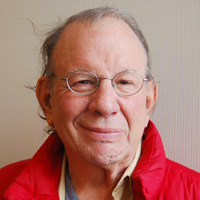I never really saw Dr. Martin Luther King Jr. on August 28, 1963 -- I was too far from the podium -- but I heard him deliver the "I Have a Dream" speech that day in Washington, D.C.
I've not forgotten his voice, his words and his legacy. In a world of hatred and killing, King stood for non-violence and love for everyone, regardless of race, class, creed, gender. No 20th-century American was more principled, and no one was more fearless. By 1968, he knew he'd be assassinated, but that didn't stop him from risking his life for the cause of freedom. After his death angry Americans rioted in the streets, followed the Black Panthers and talked about killing police officers. Last year similar impulses exploded all over again, in Ferguson, Oakland and New York. Moreover, all around the world nations and tribes aimed to get their way by using the weapons that King disdained.
And yet, all around the world a new generation has taken up his plea for non-violent resolution of conflicts and for the protection of human rights. In a time of terrorists, drones, epidemics and lies, King's insistence on peace, love and truth resonates more powerfully than ever before.
My dream now is that we put aside animosities, not only on MLK day but all through 2015, the 50th anniversary of the 1965 Voting Rights Act and the civil rights marches that began in Selma. I hope and pray that we find the kind of common ground that King, our secular saint, believed in when he called for a time when the lion and the lamb would lie down together.
With a Perspective. I'm Jonah Raskin.
Jonah Raskin is a professor emeritus of communications at Sonoma State University in Santa Rosa, a journalist and veteran of the civil rights movement.
